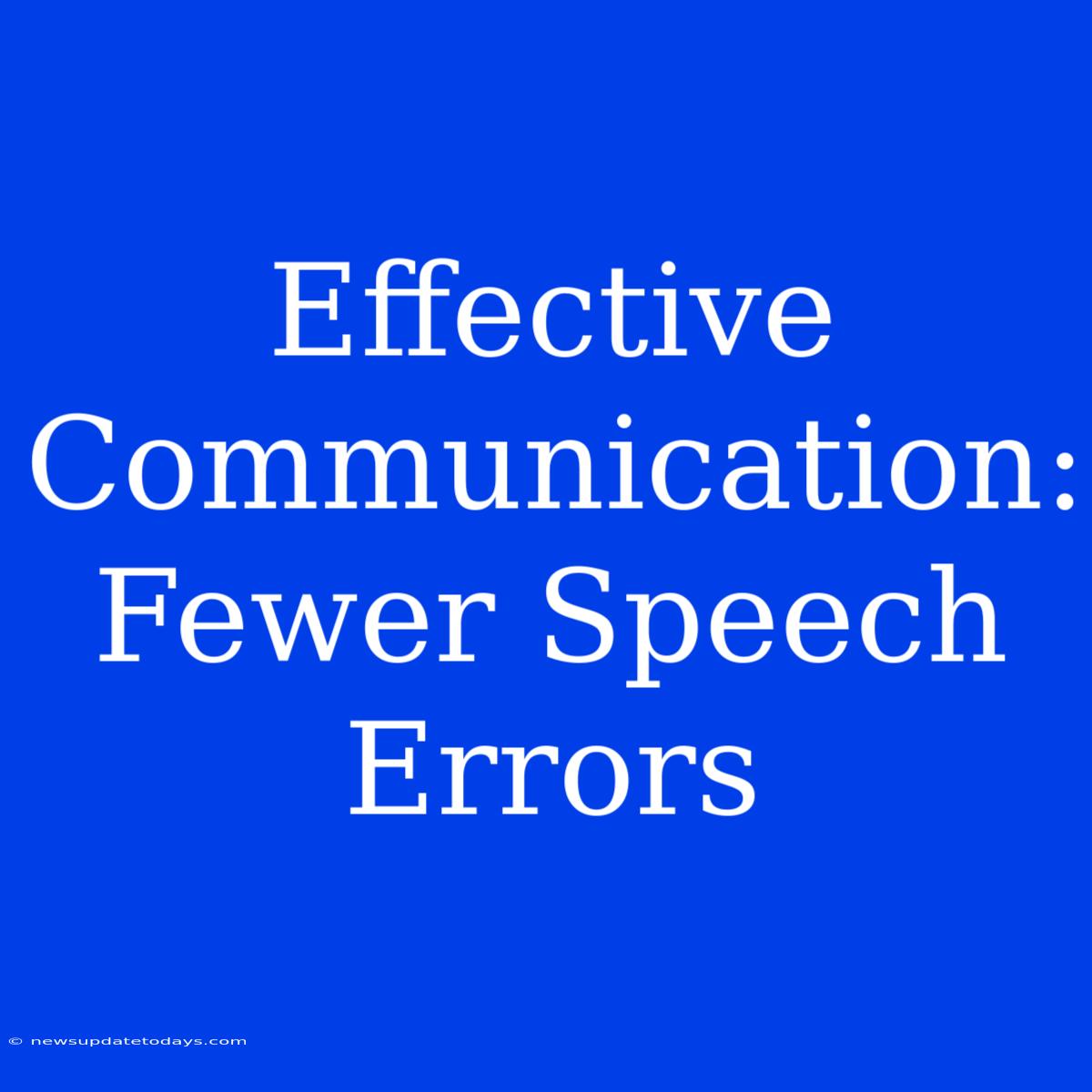Effective Communication: Reduce Speech Errors for Clearer Messaging
Effective communication is crucial for success in both personal and professional life. A significant component of effective communication is minimizing speech errors. These errors, whether grammatical, vocal, or stylistic, can hinder understanding and create a negative impression. This article explores strategies to significantly reduce speech errors and enhance your communication skills.
Why are Speech Errors Important?
Speech errors aren't just about sounding polished; they directly impact how your message is received. Consider these points:
- Clarity: Errors can confuse your audience, obscuring your intended meaning. A simple grammatical mistake can derail a complex argument.
- Credibility: Frequent errors can undermine your credibility and authority. Listeners may question your expertise if your speech is riddled with mistakes.
- Professionalism: In professional settings, clear and concise communication is essential. Errors reflect poorly on you and your organization.
- Confidence: Knowing you're communicating clearly boosts your self-confidence, leading to more engaging and persuasive communication.
Strategies to Reduce Speech Errors:
Here are practical steps you can take to reduce speech errors and improve the effectiveness of your communication:
1. Practice Active Listening: Before speaking, truly listen to understand the context and anticipate potential misunderstandings. This helps you tailor your message and avoid common errors.
2. Plan and Prepare: Don't wing it! Take time to plan your speech or conversation. Outline your main points, consider your audience, and rehearse beforehand. This proactive approach helps prevent errors arising from improvisation.
3. Slow Down: Speaking too quickly is a common cause of errors. Consciously slow down your pace, allowing yourself time to articulate your words clearly and accurately.
4. Focus on Proper Grammar and Vocabulary: Regularly review grammar rules and expand your vocabulary. The more comfortable you are with the language, the fewer errors you'll make. Consider using grammar-checking tools, but don't solely rely on them. Understanding the underlying rules is crucial.
5. Record and Review: Record yourself speaking and listen back critically. Identifying your own speech patterns and common errors is a powerful way to improve. This self-assessment provides invaluable feedback.
6. Seek Feedback: Ask trusted friends, colleagues, or mentors for constructive criticism on your speaking style. Their feedback can highlight areas for improvement you might have overlooked.
7. Embrace the Learning Process: Making mistakes is part of learning. Don't get discouraged if you still make errors. Continue practicing, learning from your mistakes, and striving for improvement.
8. Focus on Enunciation and Pronunciation: Pay close attention to how you articulate each word. Practice tongue twisters or difficult words to improve clarity and precision.
9. Use Visual Aids (When Appropriate): Visual aids, such as presentations or handouts, can support your message and reduce the pressure to convey everything verbally, minimizing potential for errors.
10. Stay Hydrated: Believe it or not, dehydration can affect your speech. Make sure you're well-hydrated before any important communication.
Conclusion:
Reducing speech errors requires consistent effort and self-awareness. By implementing these strategies, you can significantly enhance your communication skills, build confidence, and leave a positive and lasting impression on your audience. Remember, effective communication is a skill that improves with practice and dedication.

